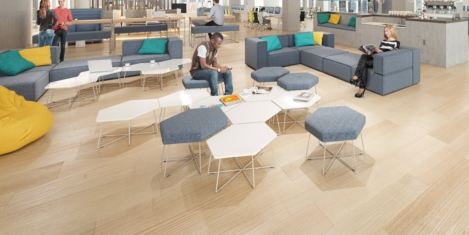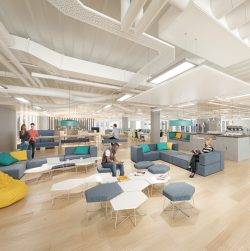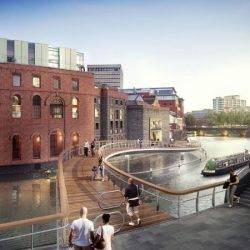April 10, 2019
Employees sceptical about attitudes of employers to digital transformation
 More than half of employees are confused about the true meaning of ‘digital transformation’ and have a high degree of scepticism about their employers’ appetite for digital innovation, a new poll suggests. The research into employees’ attitudes toward digital transformation, innovation and cutting-edge technologies such as artificial intelligence, conducted by YouGov amongst employees at 500 businesses with 50 or more employees, on behalf of Cherwell Software, found that 57 percent of employees don’t know the correct meaning of ‘digital transformation’: 20 percent of respondents couldn’t hazard a guess at its meaning and 12 percent thought it meant moving to a paperless office.
More than half of employees are confused about the true meaning of ‘digital transformation’ and have a high degree of scepticism about their employers’ appetite for digital innovation, a new poll suggests. The research into employees’ attitudes toward digital transformation, innovation and cutting-edge technologies such as artificial intelligence, conducted by YouGov amongst employees at 500 businesses with 50 or more employees, on behalf of Cherwell Software, found that 57 percent of employees don’t know the correct meaning of ‘digital transformation’: 20 percent of respondents couldn’t hazard a guess at its meaning and 12 percent thought it meant moving to a paperless office.









 New guidance has been launched by the UK Green Building Council (UKGBC) to assist client organisations to include more ambitious circular design and construction best practices in project briefs for non-domestic projects. It addresses the commercial realities associated with making this practically happen and provides support and evidence to assist clients in setting clear strategies that ensure budget, project timescales and risks are all minimised and mitigated. The guidance may also be helpful for those in the supply chain looking to support construction clients on their journey towards specifying and practically applying circular economy principles.
New guidance has been launched by the UK Green Building Council (UKGBC) to assist client organisations to include more ambitious circular design and construction best practices in project briefs for non-domestic projects. It addresses the commercial realities associated with making this practically happen and provides support and evidence to assist clients in setting clear strategies that ensure budget, project timescales and risks are all minimised and mitigated. The guidance may also be helpful for those in the supply chain looking to support construction clients on their journey towards specifying and practically applying circular economy principles.








 The corporate appetite for flexible space continues to grow as around two-thirds of occupiers rank employee engagement (68 percent) and talent attraction & development (65 percent) as two of the three most important drivers of corporate real estate (CRE) strategy. According to the 2019 EMEA Occupier Survey by CBRE over a third of companies see labour and skills shortages as a key strategic challenge, double last year’s result. In line with last year’s survey, technology disruption (36 percent) economic uncertainty (43 percent) and cost escalation (31 percent) all feature highly as key challenges for occupiers.
The corporate appetite for flexible space continues to grow as around two-thirds of occupiers rank employee engagement (68 percent) and talent attraction & development (65 percent) as two of the three most important drivers of corporate real estate (CRE) strategy. According to the 2019 EMEA Occupier Survey by CBRE over a third of companies see labour and skills shortages as a key strategic challenge, double last year’s result. In line with last year’s survey, technology disruption (36 percent) economic uncertainty (43 percent) and cost escalation (31 percent) all feature highly as key challenges for occupiers.
















April 5, 2019
Brexit, Brits and blending: what MIPIM told us about the state of corporate real estate
by Anna King • Comment, Property
(more…)